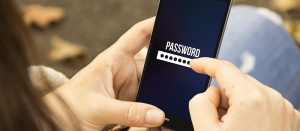Mobile devices have allowed us to be “connected” at all times. We’re never more than a swipe away from the latest news, or friends’ Facebook updates, or Tweet. The ability to not just connect online from a mini computer that fits in our pocket, but also control other devices from hundreds of miles away with it, is astonishing. The mobile age has revolutionized, yet again, how we interact with the world, but many would argue that it has also made us much less secure in that world.
Insecurity with Mobility and IoT
Mobile devices are just one of the many devices, albeit one of the most complex and useful, that makes up the ever expanding Internet of Things (IoT). IoT has allowed us to do more, and see more personal benefit, out of our smartphones. But just as we have reported time and again, it also opens up new vulnerabilities that hackers can, often easily, exploit, sometimes to disastrous ends. However, this hasn’t halted the tide of new devices, and new uses for our mobile devices.
The question is how to better secure our smartphones to prevent these types of attacks, and mitigate further risk in IoT.
Mobile Security Through Biometrics
To this end, Apple introduced Touch ID, a solution for using your fingerprint to secure your iPhone. Seems simplistic enough, and provides a much more secure way to protect your device than a four-digit passcode. However, some security experts believe that using Touch ID, or the Android device equivalent, could actually be making our smartphones less secure.
According to ZDNet, recent legal precedents in the United States now allow US authorities to demand suspects smartphones be unlocked with their fingerprint, either upon arrest or via warrant. This change comes after it was discovered that our fingerprints aren’t protected by the Fifth Amendment, the right to silence and prevention of self-incrimination, which ensures that we cannot be legally complied to enter our passwords to our devices or online accounts for law enforcement officials.
Therefore, if you use your fingerprint to lock your phone, you can be legally required to unlock it upon request by law enforcement, a slippery slope to personal privacy some argue.
So What is Touch ID Good For?
So if we shouldn’t use our fingerprints to unlock our phones, what good are they in security? Actually, there are still plenty of uses for our biometrics in security. Touch ID is still a much better way to secure Apple Pay and iTunes accounts, and using your fingerprint as a password replacement for other security measures, such as accessing business accounts, is a great way to improve the safety of the information contained within. The only change experts suggest is ceasing to use it to unlock your device in the first place.





